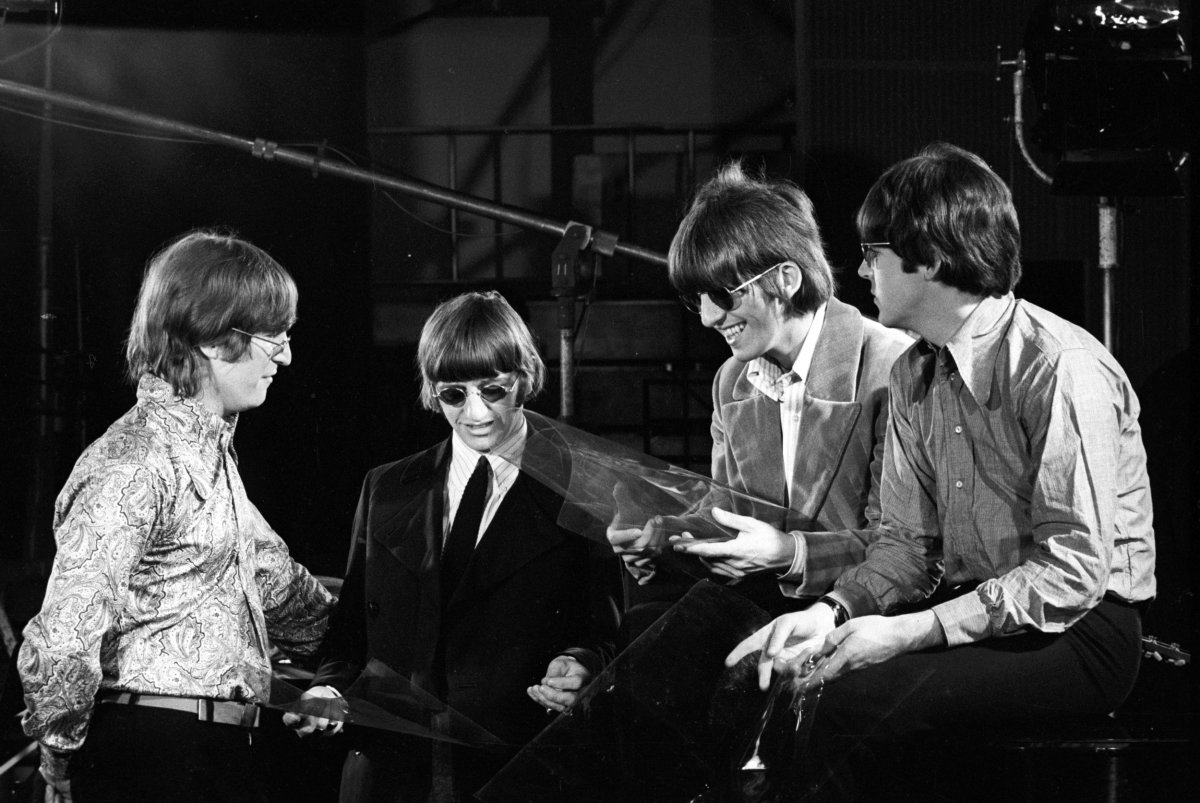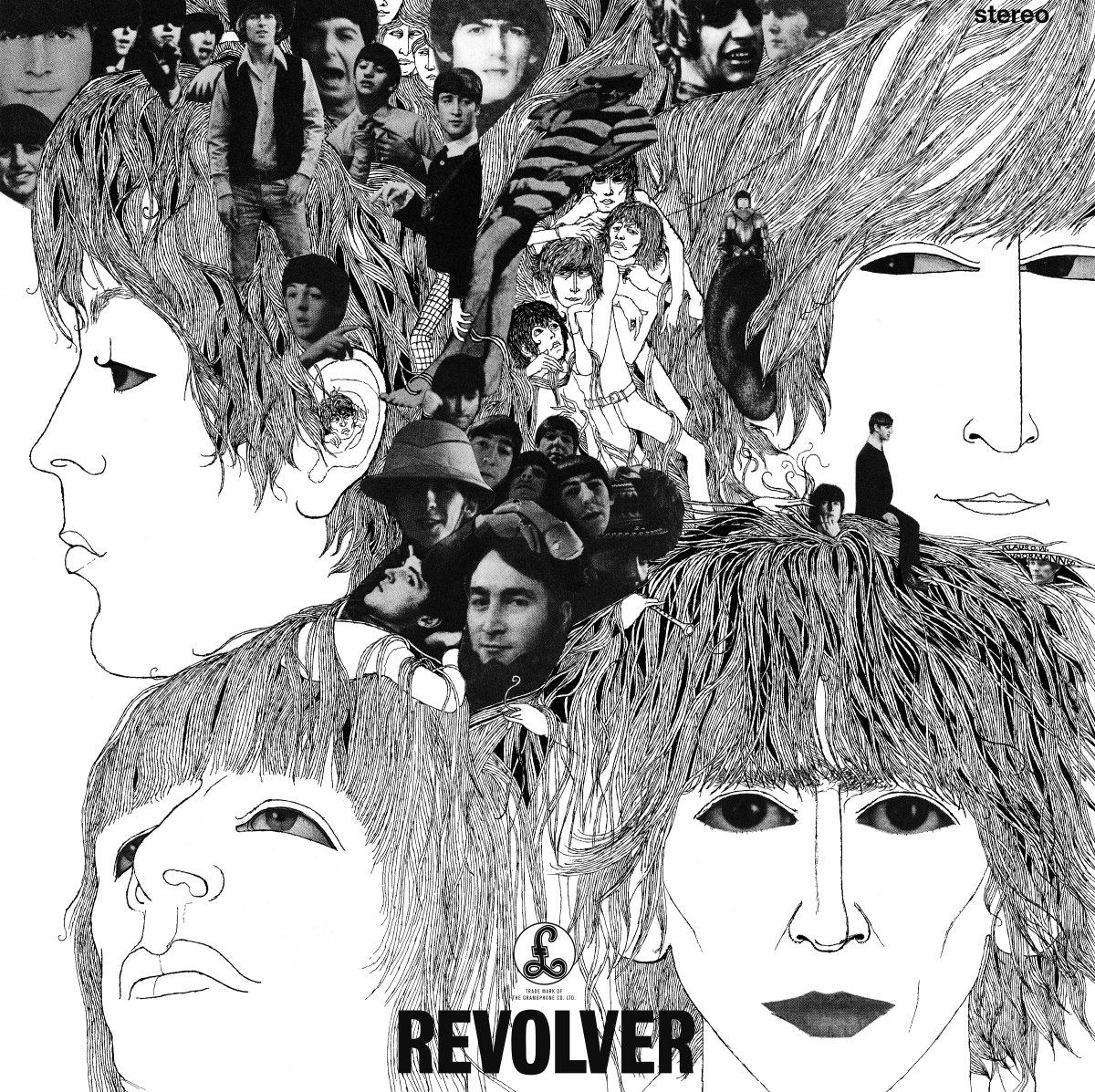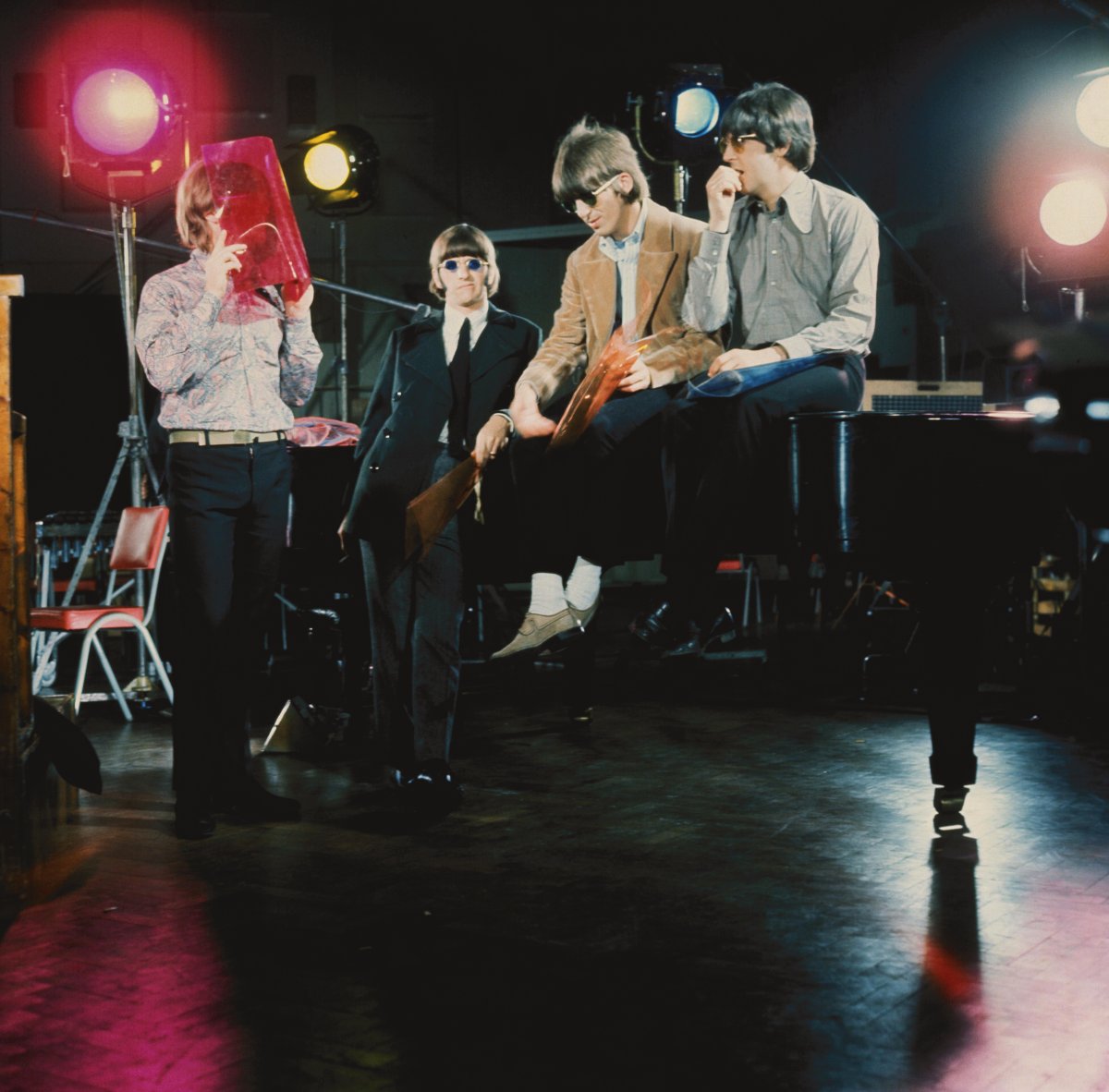The Beatles' seventh studio album, 1966's Revolver, was a turning point for the Fab Four: it was the record that saw them use the recording studio as an instrument in itself—a place where they, along with producer George Martin, could truly experiment with different recording techniques and further broaden their musical and lyrical horizons beyond their previous albums. A countercultural movement was happening during this period, and the Beatles—John Lennon, Paul McCartney, George Harrison and Ringo Starr—were at the forefront of it.

First released on August 5, 1966, Revolver—with its distinct Klaus Voorman cover art—remains one of the band's iconic works as well as one of the greatest albums of all time, containing such memorable classics as "Eleanor Rigby," "Yellow Submarine," "Taxman," "Here, There and Everywhere and "Got to Get You Into My Life." It was where the Beatles went from being a pop band to rock visionaries.
More importantly, Revolver marked the end of one era and the beginning of another; following the album's release and their final paid public performance at San Francisco's Candlestick Park, the Beatles became ensconced in the recording studio for the rest of their career.
On Friday, to the delight of fans, the long-awaited expanded reissue of Revolver has been finally released in a variety of different formats. Of particular note is the 63-track, 5-CD super deluxe edition featuring new stereo and Dolby Atmos mixes of the album by Giles Martin and Sam Okell sourced from original four-track masters; previously unreleased alternate takes and demos from the recording sessions; the original mono mix of the album; and the Revolver EP featuring the non-album single 'Paperback Writer" and its accompanying B-side "Rain".
This new edition of Revolver is the latest installment in the Beatles' expanded album reissue campaign following Sgt. Pepper's Lonely Hearts Club Band, The Beatles (a.k.a. The White Album), Abbey Road and Let It Be.
Prior to the Beatles' 1967 conceptual masterpiece Sgt. Pepper's, Revolver was the band's most diverse-sounding effort: elements of psychedelia, avant-garde, and classical and Indian music seamlessly complemented the band's trademark pop sound. With the album's array of then-innovative recording techniques such as tape loops and backmasking—as exemplified by the groundbreaking acid-laced "Tomorrow Never Knows," it is still remarkable over 50 years later that Revolver was recorded in a four-track studio. And while there were a few love songs that recalled the Beatles' past works, like "Here, There and Everywhere," Revolver's lyrics showed the Beatles reaching a level of maturity, sophistication and complexity that truly established them as the spokespersons of '60s youth culture.

"Our stimulated imaginations were coming up with new styles in the same way that the whole generation was changing, experimenting and blossoming into something new," McCartney recently wrote in the foreword for the super deluxe edition's liner notes. "With this album we came up with not only a batch of innovative songs but songs that would stand the test of time."
Just like their work on the previous expanded album editions from the last five years, producer Giles Martin (the son of late Beatles producer George Martin) and engineer Sam Okell treated the new stereo mix of Revolver with meticulous attention. The result is a sound with a lot of pop, punch and clarity, especially on the more uptempo songs like "Taxman," "I Want to Tell You," "Got to Get You Into My Life," and Tomorrow Never Knows"; it's as though the listener is right there with the band in the recording studio. For old-fashioned purists, the original mono mix,the most common version of the album that most people heard in 1966 before stereo became the norm, is also included in the super deluxe set.
"People forget that it's just a young band playing in the studio," Giles Martin recently told the BBC. "Everything is fairly aggressive. Everything is in your face. Everything the Beatles recorded is a little bit louder than you think it is."
The main draw of this new edition of Revolver is the two discs of session material that show embryonic versions of the album's songs. For instance, "Tomorrow Never Knows" (take 1) sounds stark and slower, providing the blueprint of what would become the master take; "Got to Get You Into My Life" (first version, take 5) is presented without the horns, with a more prominent organ; and Harrison's country-styled "Love You To" (take 1) to features just the singer and acoustic guitar minus the sitar and tabla that would later be heard on the finished version.
Some of the studio chatter heard from the sessions provides additional insight into the songwriting and recording process, especially on "Eleanor Rigby" where the listener hears the back-and-forth discussion between McCartney, George Martin and the string players about whether to use the vibrato.
One of the most interesting outtakes from the recording sessions is "Yellow Submarine," appearing here in the new set in four different forms to show the gradual development of the track. From part one of the songwriting work tape, Lennon is heard singing a fragment of the song accompanied by acoustic guitar and with some melancholy lyrics ("In the place where I was born/No one cared/No one cared")—quite a departure from the familiar whimsical version with Starr's lead vocal. Equally interesting is an early take of "Rain" (made during the Revolver sessions but did not appear on the album) where the backing track was recorded at its original fast speed before it was slowed down for the master tape.
As far as the packaging itself, the super deluxe edition comes with a sumptuous 100-page hardback book with detailed liner notes behind the making of the album, track-by-track commentary, an introduction by Giles Martin, and an essay by the Roots' Questlove, who wrote: "It's the record that shows the most diversity and virtuosity. If Sgt Pepper's is a concept album, this is a concept album about not having a concept, a door-to-door illustration of a band in the middle of rapid change...I feel like anyone who namechecks this record gets it."

One can say that Revolver is the perhaps greatest and most important Beatles album ever, even within a discography that includes Rubber Soul, Sgt. Pepper's and Abbey Road. This new reissue enhances its legend, giving fans another opportunity to further marvel at its artistry and innovation.
In addition to the super deluxe 5-CD edition, the other formats for the new stereo mix of Revolver include a 2-CD deluxe edition and a standard 1 CD or 1 LP edition.
Uncommon Knowledge
Newsweek is committed to challenging conventional wisdom and finding connections in the search for common ground.
Newsweek is committed to challenging conventional wisdom and finding connections in the search for common ground.
About the writer
To read how Newsweek uses AI as a newsroom tool, Click here.






